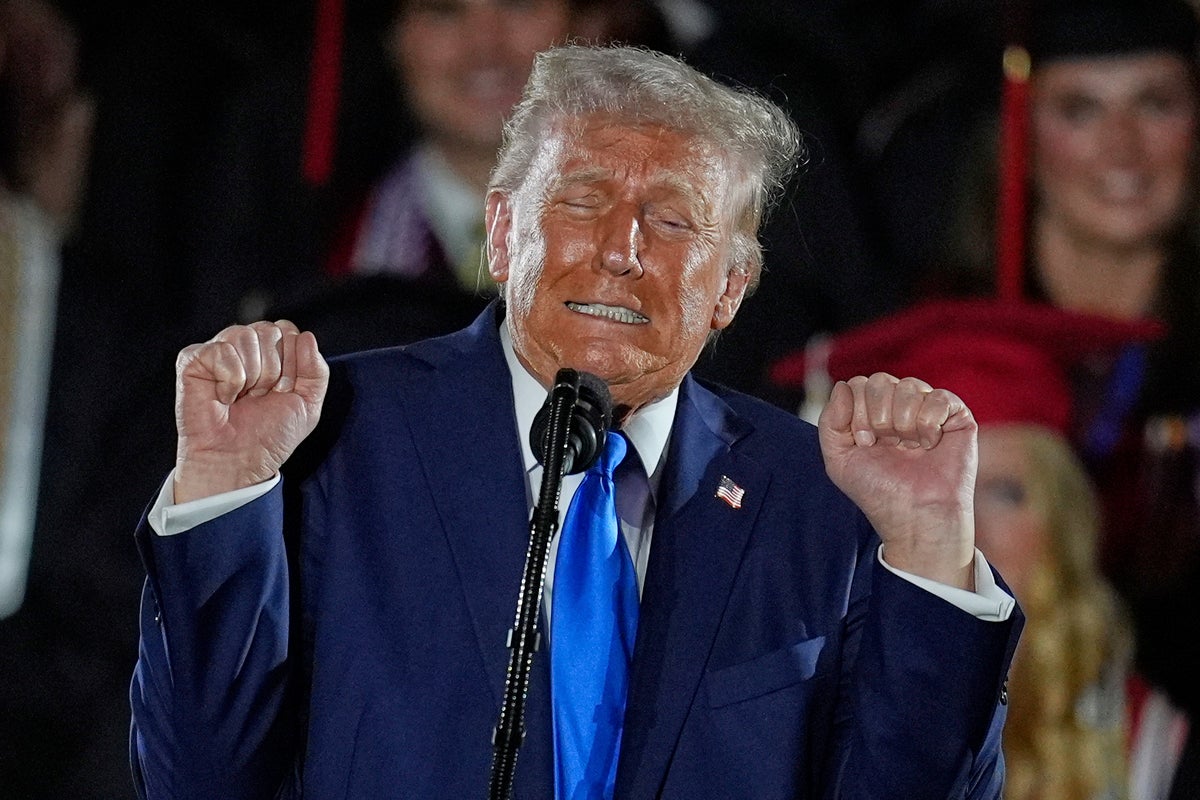Understanding Trump’s Economic Predictions Amidst Recession Fears
In recent discussions surrounding the U.S. economy, President Donald Trump has made bold assertions about the resilience of American markets, even in the face of significant economic adversity. During a pre-taped interview for NBC’s Meet the Press, Trump downplayed fears of a recession—a concern looming over many Americans and Wall Street insiders after a report showed a 0.3 percent contraction in the economy for the first quarter. This marked the first decline in three years, igniting conversations about the impacts of his trade war with various developed nations.
Trump’s Optimistic Outlook
Trump’s perspective on the economy seems resolutely positive. In the interview, he remarked, “It’s everything’s okay,” framing the current economic climate as a transitional phase leading to an unprecedented boom. His assertion serves as a stark contrast to the anxieties expressed by many economists and citizens regarding the fallout from his tariff policies. By dismissing these concerns, Trump paints an optimistic picture of an economy that he believes will soon flourish.
The Impact of Tariffs
In his address to NBC, the president was confronted about the implications his import taxes on Chinese goods might have on American consumers and businesses. Critics argue that these tariffs risk triggering a recession characterized by two consecutive quarters of economic contraction. However, Trump’s unwavering confidence reflects his belief that these policies will eventually yield substantial benefits for the U.S. economy. He posited that the trade war could lead to the “greatest windfall to ever happen.”
Blame on Biden
Despite the economic turmoil, Trump has been quick to attribute responsibility for the fluctuating stock market and poor economic reports to President Joe Biden. During a cabinet meeting, when challenged about connecting current economic challenges to Biden while having previously claimed credit for stock market highs, Trump attributed issues to an “economic mess” he inherited. This tactic of shifting the narrative suggests an effort to consolidate his standing among his base, who may be feeling the strain of rising prices and uncertain market conditions.
Public Sentiment
Trump’s statements contrast sharply with public sentiment. Recent Gallup data shows an increasing number of Americans—46 percent—hold Trump accountable for the unstable economy, up from 43 percent in March. In contrast, only 27 percent find Biden responsible for these economic challenges, suggesting that Trump’s messaging may not resonate as intended. Additionally, approximately 21 percent of participants believe both presidents share equal blame, highlighting a complex narrative surrounding economic responsibility in contemporary politics.
Economic Challenges Ahead
As the Biden administration strives to navigate the aftermath of the Covid-19 pandemic, the President’s trade policies continue to be a focal point of scrutiny. Economists argue that his approach may have contributed to inflationary pressures, complicating the recovery process. As inflation rates reached highs not seen in decades during Biden’s term, discussions around economic management and effective policy are at the forefront of national discourse.
A Divided Narrative
The contrasting narratives presented by Trump and analysts reflect a deeper division in American political discourse. While Trump holds firm in his belief that the economy will rebound due to his policies, many critics worry about the long-term effects of ongoing trade disputes and inflationary pressures. This bifurcated view signifies not just economic concerns but a broader debate about leadership responsibilities and the long-term strategy for economic recovery.
Through this ongoing dialogue, it’s clear that economic predictions and the narratives surrounding them will continue to influence public perception and policy direction as the nation grapples with both immediate challenges and future uncertainties.


